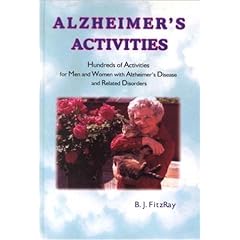If I had been aware of this article I would have recognized the change in the pattern of my mother's walking as a sign of dementia. Instead we simply thought of it as a sign of old age.
Walking Changes May Be Alzheimer's Sign
Changes in the brain may make it harder for older people to keep their balance and move around well.
A three-year study at the University of Florence took brain scans of 639 people and measured them in walking tests.
Those with severe changes to the white matter of their brains were twice as likely to score poorly on the physical tests. They were twice as likely as those with mild changes to have a history of falls.
"Walking difficulties and falls are major symptoms of people with white matter changes and a significant cause of illness and death in the elderly," said study author Dr. Hansjoerg Baezner, of the University of Heidelberg in Mannheim, Germany. "Exercise may have the potential to reduce the risk of these problems since exercise is associated with improved walking and balance."
He noted that limited mobility can hurt the chances of living independently and lead to more time in hospitals and nursing homes.
He also said that early detection of balance problems may lead to earlier detection of Alzheimer's disease or other forms of dementia.

Alzheimer's Activities: Hundreds of Activities for Men and Women With Alzheimer's Disease and Related Disorders
"Walking difficulties and falls are major symptoms of people with white matter changes and a significant cause of illness and death in the elderly," said study author Dr. Hansjoerg Baezner, of the University of Heidelberg in Mannheim, Germany. "Exercise may have the potential to reduce the risk of these problems since exercise is associated with improved walking and balance."
Walking Changes May Be Alzheimer's Sign
Changes in the brain may make it harder for older people to keep their balance and move around well.
A three-year study at the University of Florence took brain scans of 639 people and measured them in walking tests.
Those with severe changes to the white matter of their brains were twice as likely to score poorly on the physical tests. They were twice as likely as those with mild changes to have a history of falls.
"Walking difficulties and falls are major symptoms of people with white matter changes and a significant cause of illness and death in the elderly," said study author Dr. Hansjoerg Baezner, of the University of Heidelberg in Mannheim, Germany. "Exercise may have the potential to reduce the risk of these problems since exercise is associated with improved walking and balance."
He noted that limited mobility can hurt the chances of living independently and lead to more time in hospitals and nursing homes.
He also said that early detection of balance problems may lead to earlier detection of Alzheimer's disease or other forms of dementia.
